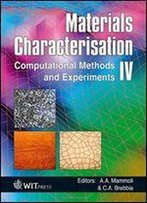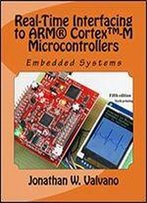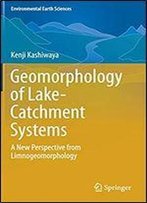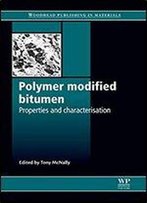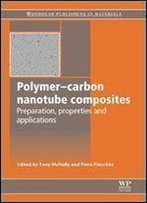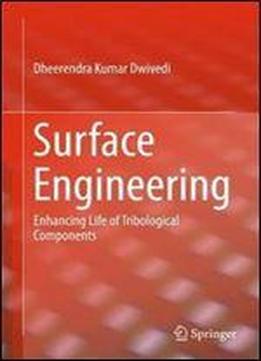
Surface Engineering: Enhancing Life Of Tribological Components
by Dheerendra Kumar Dwivedi /
2018 / English / PDF
11.9 MB Download
This book is intended to help engineers analyze service condition and potential mechanisms of surface degradation. This will enable engineers select suitable materials for improved service-life and performance of engineering components. The book comprises 7 chapters, and is well illustrated with schematics, photographs, microstructure, XRD patterns, EDAX mapping, and technical data tables. The book focuses on the influence of materials and methods of surface engineering on structure, properties, and wear-performance of engineering components. It begins with the need to study the subject of surface engineering, scope of surface engineering, and classification of techniques of surface engineering. The book covers conventional material system (steel, cast iron, stellite, WC-Co, PCDs, etc.) and new materials like multilayer structures, functionally gradient materials (FGMs), intermetallic barrier coatings, and thermal barrier coating. The book covers most conventional as well as advanced surface engineering techniques, such as burnishing, shot peening, flame and induction hardening, laser and electron beam hardening, plasma and TIG melting, carburizing, nitriding, cyaniding, boronizing, vanadizing, ion implantation, laser alloying, chemical vapor deposition, PE chemical vapor deposition, physical vapor deposition, weld overlays, laser cladding, hot dip galvanizing, hot dip lead tin coating, hot dip aluminizing, hot dip chromizing, electroplating, electroless plating (Ni-P and Ni-B), mechanical plating, roll bonding, explosive bonding, and hot isostatic. The book also includes an introductory chapter on friction-stir processing of aluminum and titanium alloys. Further, it discusses studies on structure, mechanical and wear properties of weld surfacing, flame spray coating, HVOF sprayed coating, laser cladding of ferrous metals, nickel and cobalt based alloys and their composites in as-sprayed and heat-treated conditions. The book provides a comprehensive overview of various destructive and nondestructive techniques used for characterization of engineered surfaces. The materials in the book will be useful to undergraduate and graduate students. In addition, the contents of this book can also be used for professional development courses for practicing engineers.This book is intended to help engineers analyze service condition and potential mechanisms of surface degradation. This will enable engineers select suitable materials for improved service-life and performance of engineering components. The book comprises 7 chapters, and is well illustrated with schematics, photographs, microstructure, XRD patterns, EDAX mapping, and technical data tables. The book focuses on the influence of materials and methods of surface engineering on structure, properties, and wear-performance of engineering components. It begins with the need to study the subject of surface engineering, scope of surface engineering, and classification of techniques of surface engineering. The book covers conventional material system (steel, cast iron, stellite, WC-Co, PCDs, etc.) and new materials like multilayer structures, functionally gradient materials (FGMs), intermetallic barrier coatings, and thermal barrier coating.
